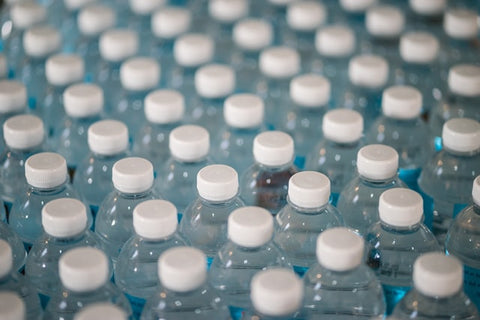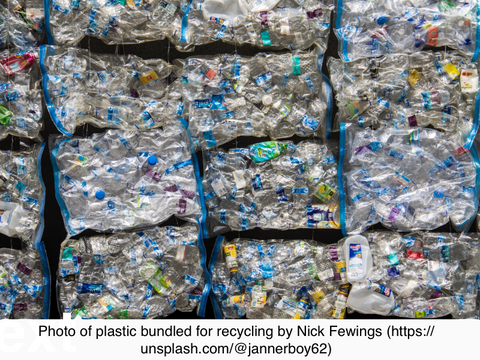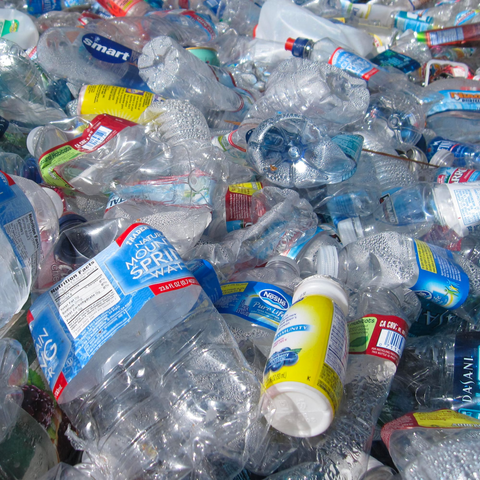As most of us are now aware, plastic takes 450 years to degrade and is piling up all around us (and even inside us) after decades of mass production. Further, it's become very clear that plastic recycling doesn't work, so we've got to figure out a better way forward. So, how did we land in this predicament anyway? Lately, the answer to such questions too often seems to be “well, those people over there are evil.” That's never the full explanation. We’ve all been part of the plastic waste problem in some way (intentionally or otherwise) and now we all need to be part of the solution.
Being a food business that buys and sells containers in bulk quantities, we at HEX know how important we are to that process. We know we must carefully consider what we use, who we buy it from, and what happens to those containers after they leave our facility. So, we keep our eyes open to the latest data and findings so we can make business decisions that help solve the plastic problem.
The Miracle of Plastic!

Plastic is pretty useful. No wonder we fell in love. Quick, easy, and cheap; the holy trinity of modern product development. As the Beatles were taking over the world in the 60s, so was plastic. Some Beatles haters (doesn't apply to us) described the new band as "plastic soul." Never ones to miss an opportunity for laughs, they named their next album "Rubber Soul," but the suspicion about what we were getting ourselves into with plastic was palpable.
The year that album was released, a Swedish engineer invented "the T-shirt plastic bag" (aka the single use grocery bag that has been dangling from trees ever since). Unfortunately, the long commitment to plastic has put us in a bind now. Plastic is being transferred to the unborn before they enter the world , there is a mostly plastic garbage patch in the Pacific Ocean that is twice the size of Texas, and farmlands are being declared unusable from plastic-related chemicals.
So, is plastic quick and easy? Yes. Cheaper? No. The bill coming due for plastic is growing larger and larger. Also, at the time of the plastic bag takeover in the 1980s, a thousand paper bags were $30 and a thousand plastic bags cost $24, which isn’t all that much savings, but the companies wanting to sell those bags went to great lengths to make sure we switched before we thought about it for too long.
The Plastic Pattern Takes Hold

This is how "time heals all wounds," by erasing our tracks. The pain and terrible bargains we make are swept under the rug lest our minds become reverberating echo chambers of failure stories. We declare a zero point and move on. As described above though, some companies take advantage of this human condition to recklessly shove their agenda forward. And just like that, we’re sleepwalking with plastic.
Perhaps we could all just slow down a little bit? Having some empty space in our schedules is a natural pattern disrupter, but American society rarely slows down with anything we do, and many in our country are working three jobs just to make ends meet. So, grow we must, but we can do so responsibly. We can and must wake up to the situation unfolding and figure out how to fix the problem.
Recycling to the rescue?!
By the 1980s, the trash was piling up in record amounts. U.S. cities started launching recycling programs to divert paper, aluminum, glass, and plastic away from the landfills and incinerators. In the forty years since, we’ve figured out how to make recycling a widespread and somewhat successful practice... except when it comes to plastic.

Most of the plastic we intended to recycle in 2021 (about 95%) became trash. Most of the containers and packaging labeled as recyclable can only be recycled if you take them to special collection centers, which nobody has time to do. Even then, none of the vast array of plastic materials labeled as recyclable (PET#1, HDPE#2, LDPE#4, PP#5, and PS#6) can be processed together.
Further, most recycled plastics don’t meet food-grade standards following exposure to other plastic containers in recycling bins that were used for chemical storage. Chemical recycling of plastic, touted as a solution by the plastic industry, doesn’t work either, can be a fire hazard, and produces toxic chemicals.
It’s not looking like these problems will be resolved anytime soon either, because it’s far cheaper for most companies to just make new plastic.
Reduce and reuse is the best option!
After centuries of messy cleanups, humans have come to realize that ‘an ounce of prevention is worth a pound of cure.’ This is never more true than when it comes to plastic and its persistence in our environment. The most important action we take right now is to limit its creation in the first place.
At HEX, we don't ferment or package in plastic. Acidified foods that undergo complicated chemical reactions (fermentation) leach chemicals and cause adverse health effects, especially in early development. Food-Grade doesn't mean food-safe, especially with exposure to acid over long periods of time - often many months with fermented foods. So, we use glass containers and minimize use of single-use plastics whenever possible.
Also, to promote reuse, we take $3 off when customers return one of our kombucha bottles. We are working on a jar return program too. We want to incentivize sustainable practices.
Sustainable practices are more expensive for businesses like ours, but short-term cost cannot be the only factor considered. We have to look at the long-term costs to our health and planet. Also, sustainable practices are not as cost prohibitive as some would have you believe. There is a thriving and growing network of locally connected small businesses that succeed while doing things the right way. That’s what we want to be a part of.
How can we all work together to fix the plastic problem?
There are a lot of things organizations and individuals can do locally to influence change, including:
- Talking about it and breaking the patterns of inaction and thoughtless production
- Eliminating single-use plastic products from our lives to suppress demand
- Using glass, metal and other materials instead of plastic
- Dropping off "film plastics" like grocery bags at special drop-off locations
- Asking your local government representatives to work on laws that regulate and limit the proliferation of plastic
- Using reusable dishware and utensils at schools and restaurants
Investments in plastic processing innovations are increasing, and nature is doing its best to help us too. Biological recycling in particular seems to hold great promise. For instance, enzymes have been discovered at landfills that can break down plastic at faster rates than ever. One of the latest enzymes discovered (PHL7), can break down plastic in less than a day. Way to go, Phil! Alas, Phil does not like to eat some of the “high crystallinity” plastics found in many plastic bottles, but these plastic-loving enzymes are a great discovery. Leave it to nature to come bail us out again!
Recently, the United Nations Environment Assembly (UNEA) passed a resolution mandating the creation of a multilateral treaty to address plastic pollution. This article breaks down all the complexities involved in coming up with a plastic pollution solution. There are many challenges to overcome, and it's never easy for different countries to agree on costly programs, but they're working on it.
As we all work together to fix this problem, we at HEX will keep walking the walk and talking the talk when it comes to eliminating plastic pollution. If you discover new ways to do this, reach out and let us know! We are always looking for ways to do better.


